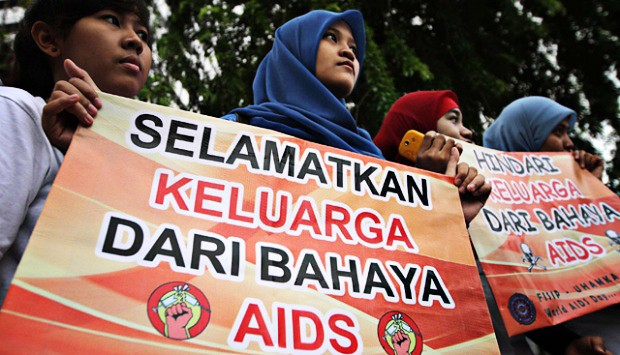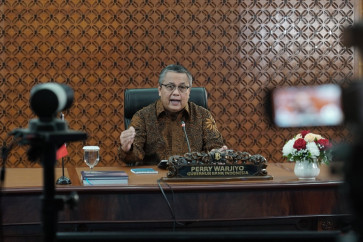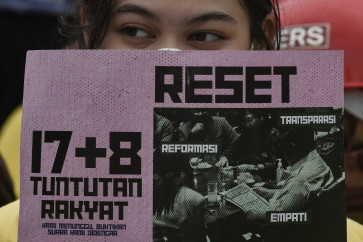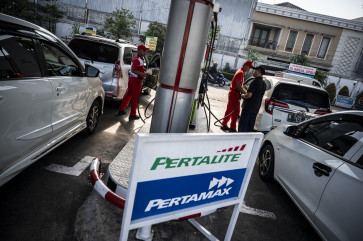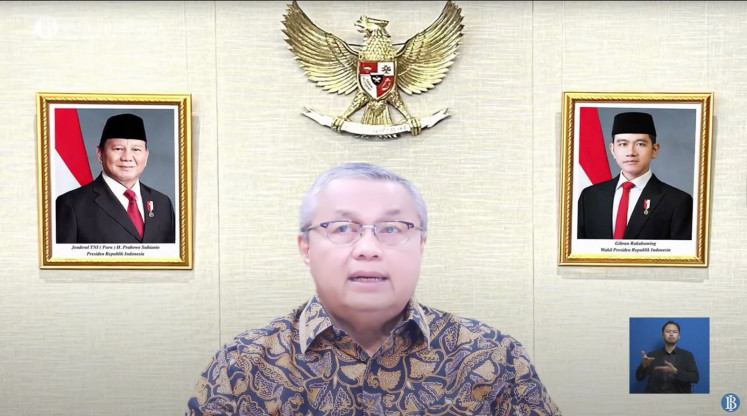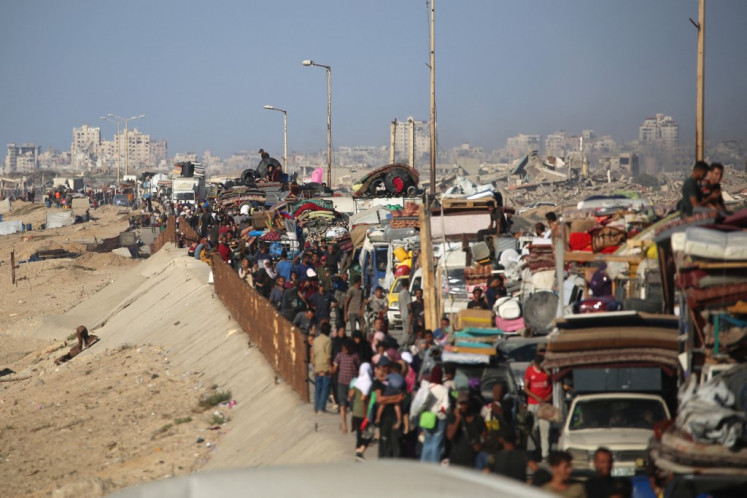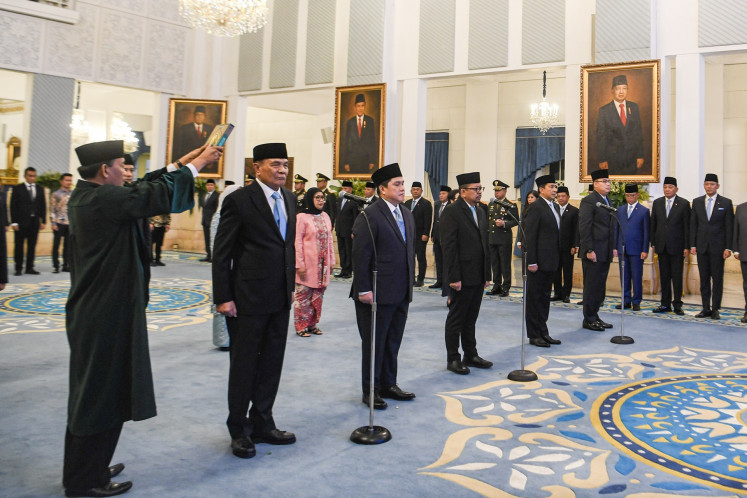Popular Reads
Top Results
Can't find what you're looking for?
View all search resultsPopular Reads
Top Results
Can't find what you're looking for?
View all search resultsMinorities denied entry to mosques, schools
Change text size
Gift Premium Articles
to Anyone
B
eing gay in a religious neighborhood in Indonesia is certainly tough, but Hendro Yudistira faces even tougher odds. He has been living as a gay man and deaf person in a judgmental and ignorant community for 38 years.
Hendro was born deaf and was sexually abused by a male servant at his house when he was 3 years old. He was too afraid to talk about the abuse to his parents or to report the incident to the police because none of his neighbors could fully understand what it is like to be deaf.
For years, he received devastating stigma, being called a “source of disease” by neighbors due to his homosexuality. As a deaf man he had nobody to talk to about how to have safe homosexual sex.
“I came to a point where I found out that my movements were restricted because people thought that as a gay person I spread diseases. No one told me how to use a condom, which is important, until I connected with an NGO working in the HIV and AIDS sector, who told me how to do so,” Hendro testified during a minority group forum at the National Commission on Human Rights (Komnas HAM) on Wednesday.
Now a member of the Indonesian Deaf People’s Welfare Movement (Gerkatin), Hendro said people who were deaf and gay faced a double burden of suffering in society, especially at schools and universities, because most people tended to have negative views about them.
“My message to LGBT people is this: Go have yourselves tested for HIV/AIDS to ensure that you are OK and have not contracted [HIV AIDS],” he said.
He has one simple wish: that the suffering he has endured for being deaf and a gay will not happen to others. He hopes Komnas HAM will launch further public awareness campaigns.
As well as facing stigma, gay people are also denied access to religious education. Mohamad Safiq, 25, was expelled from a pesantren (Islamic boarding school) in Brebes regency, Central Java, after a teacher found out about his sexual tendencies.
“I had to give up on my goal: being able to read the Kitab Kuning [Islamic classical textbooks written in Arabic]. I have nowhere to study the Kitab Kuning now,” said Safiq, who grew up in an Islamic family.
He became more frustrated about his sexuality after witnessing local people forcefully kick out a transgender person from a mosque while the person was praying in male clothing
“Why did that mosque become a place where a person’s right to pray to God was violated? It scares me,” Safiq said, calling on Komnas HAM to step up social campaigns with regard to the rights of homosexuals to pray and receive religious education.
“Transgender people are arrested on the street by security officers and when they want to get closer to their God they are also expelled. We need a safe place,” Safiq added.
Rina Prasarani, a campaigner with the Indonesian Blind Union (Pertuni), said many members of the organization suffered discrimination when it came to praying at mosques.
“In addition to difficulties faced by friends who use wheelchairs to access mosques, some friends also have experiences like this: They go to a mosque to pray but people give them money [because they think they are beggars]. This kind of image is well established in society, but the state never corrects it. Rather, it’s lack of addressing [the stereotypes] only serves to justify them,” Rina said.
“This violence-without-violence stigma is an effective way to kill people’s character. Its impact stays with a person forever,” Rina added.
Komnas HAM commissioner Muhammad Nurkhoiron said LGBT people were at the top of the list of persecuted minority groups in Indonesia, given the widespread stigma that LGBT people faced.
“We can say that attacks on LGBT people come from almost all directions,” Nurkhoirun.
As part of Wednesday’s forum to hear directly from minority groups about the suffering they face, Komnas HAM officially identified five types of minority groups that the government should prioritize in formulating policy in the future.
The five types are sexual orientation and identity minorities, racial minorities, ethnic minorities, disability-based minorities and religious and faith-based minorities.
The Commission will later put all minority groups in Indonesia into one of the five types in order to help identify their needs so that there will be no ambiguous terminology used to describe minority groups in any future government policies.

